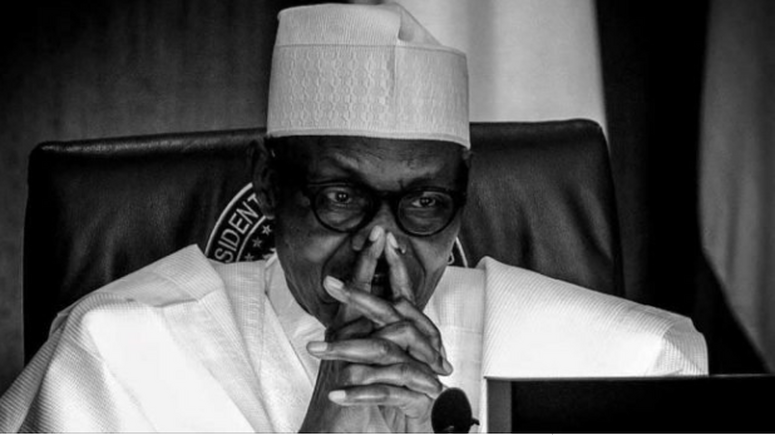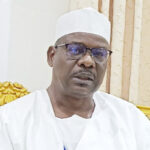December tends to be when signs and predictions of harder time begin to make the rounds in Nigeria, and this time isn’t different. The horror either begins with kilometres-long queues of cars at filling stations across the country or an ambiguous announcement by a double-speaking government official.
The past few weeks have been characterized by mostly harsh reactions to the federal government’s proposal to increase fuel price to N340 per litre.
This time around, there isn’t any ambiguity to keep the country polarized as usual. At the recent World Bank Nigeria Development Update event, the GMD of Nigerian National Petroleum Corporation Limited, Mele Kyari, was reported as confirming the proposed price regime, and that it may vary between N320 and N340 per litre. He was quick to underline the nobility of the proposal, explaining that the “government has a bigger social responsibility to cater for the ordinary and therefore engage in a process that will ensure that we exit in the most subtle and easy manner”.
This “easy and subtle” manner, unfortunately, isn’t Mr. Kyar’s department. The politicians are going to be in charge, and their antecedents tell us we are likely to revisit the reality of fuel subsidies, which were even more than education, health and defence allocations in Nigeria’s budgets. Buhari’s potential successors, of course, are warming up to make it their campaign talking point in the coming months. Nigeria’s lack of fidelity to the facts of the subsidy and, especially, the reasons behind it warrant the seasonal bursts of outrage around the proposed removal.
Even President Buhari’s perception of fuel subsidy is problematic. Immediately before he assumed power in 2015, he asked to know what the fuel subsidy regime really meant, believing it was a mere drainpipe for thieving elite. This view was probably in solidarity with the anti-Jonathan demographic that supported him, one that led to nationwide protests against the removal of subsidy in early 2012. That outrage was driven more by political resentment against Jonathan’s presidency than it was by the economics of the oil market in which Nigeria had failed to maximize profits.
Jonathan’s eventual decision to subsidize the outrage of Nigerians, just to forestall the nation’s descent into anarchy, is the typical position of a country that had long teetered on the brink of populism. His government was paying 43% of the cost of every litre of petrol bought in Nigeria, and that’s less scary compared to the 72% paid in the 1970s. While the subsidies are in place to let Nigerians afford petrol below the international price, which is a welfare system peculiar to various economically wrecked countries, it’s allowed to overstayed, lacked transparency and, thus, became a subject of that corruption trial that would’ve led to eye-opening and objective revelations if Faruk Lawan had not succumbed to greed in 2012.
In Buhari’s early days in office, after finally acknowledging the reality of fuel subsidy, his appointees and media handlers employed propaganda to say the country had finalized the long-dreaded removal of subsidy, and that the hike in fuel price was for that economic purpose. Still, Nigeria kept losing money so much that the then Minister of Finance, Kemi Adeosun, had to address the matter. “Technically,” she said in 2018, “there is no subsidy but there is under-recovery”. She claimed oil importers were “importing at a higher price than they are selling, which means they are losing money, which means effectively that that loss is being borne by everybody and effectively it reflects in the Federation Account”. But what Kemi explained in those confusing words was exactly the subsidy the government claimed to have removed, and it’s a scandalous policy somersault. In the two years after bamboozling Nigerians, the government spent $7 billion on “non-existent” subsidies.
But Nigeria’s problem is much complex than the overstaying subsidy; it thrives on the trust deficit between the impoverished people and governments that are everything but frugal. The reaction to attempts to remove fuel subsidies over the years, therefore, is beyond the mere economics of the policy. The most important question is, even if the subsidy is successfully removed this time around, what does the government intend to do differently?
The argument that Nigeria is too poor for the welfare system it pretends to practise is informed, but what has the government demonstrated to win the trust of the public? It’s difficult to convince the public that a system that manufactures sudden billionaires who merely head a government agency or some glorified ad hoc committee is serving the interests of the roadside hawkers who can’t afford a decent meal or educate their children at already-subsidized schools.
In all economic arguments, our long-practised fuel subsidy regime has been fairly established as a disadvantage to Nigeria, but it’s also the price of decades of poorly-implemented policies. Half the people of Nigeria aren’t languishing in poverty by their design or what the cruel politicians may consider intentional docility. The Nigerian masses are victims of an organized crime masterminded by the very political class speaking fancy English from Abuja to Zurich in paying their dues to Adam Smith. The subsidy, also, is the only—and I repeat, only—benefits of this social contract some Nigerians can point in Potiskum or Iseyin.
However, on the hill of social privilege, the rush to justify the economics of fuel subsidy is tempting. The increase of fuel price by over 100% doesn’t come with higher income. In fact, the same governments have been unable to fully implement even the meagre N30,000 minimum wage. Interestingly, the federal government’s solution to the likely pushback on the subsidy removal is acquiring loans to afford distribution of “N5,000 to 40 million poorest Nigerians each as transport grant to cushion the effect of the planned removal of the fuel subsidy”. This is a way to subsidize national outrage, but what next after that?
Nigeria’s human capital disaster calls for sober reflection on life after subsidy, and it’s something a cash handout less than what some of us pay for a meal in Abuja can’t redeem. The looming inflation in a country at the mercy of nationwide security lapse largely attributed to poverty should alarm us. Ordinarily, such decisions are made along with the timeline of rolling out some fancily named economic recovery or poverty-alleviation plans but these things seem like difficult maths in Nigeria. We can’t subsidize the poor man’s outrage forever.

 Join Daily Trust WhatsApp Community For Quick Access To News and Happenings Around You.
Join Daily Trust WhatsApp Community For Quick Access To News and Happenings Around You.


